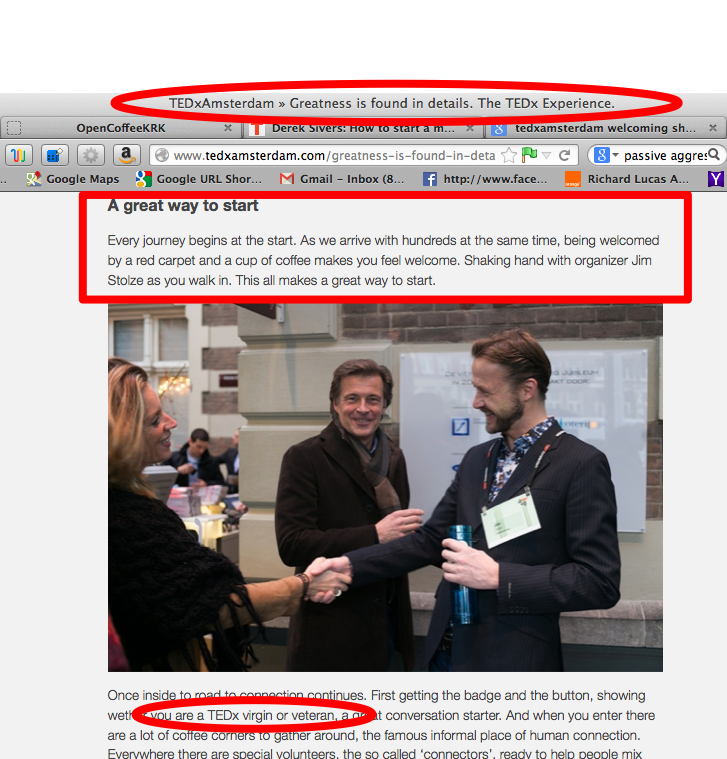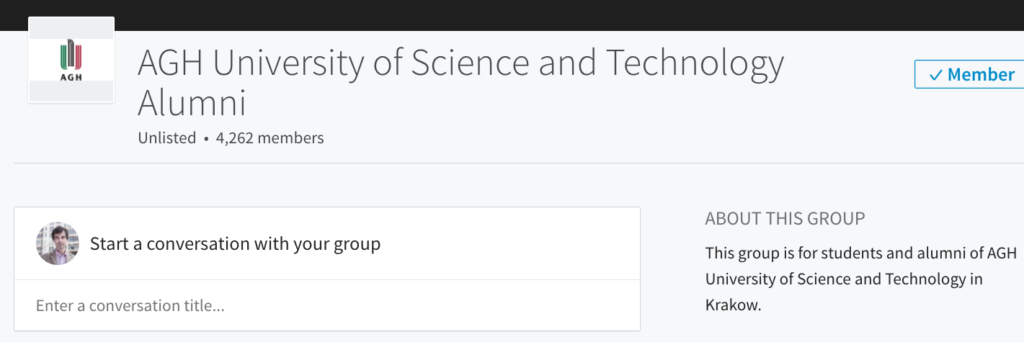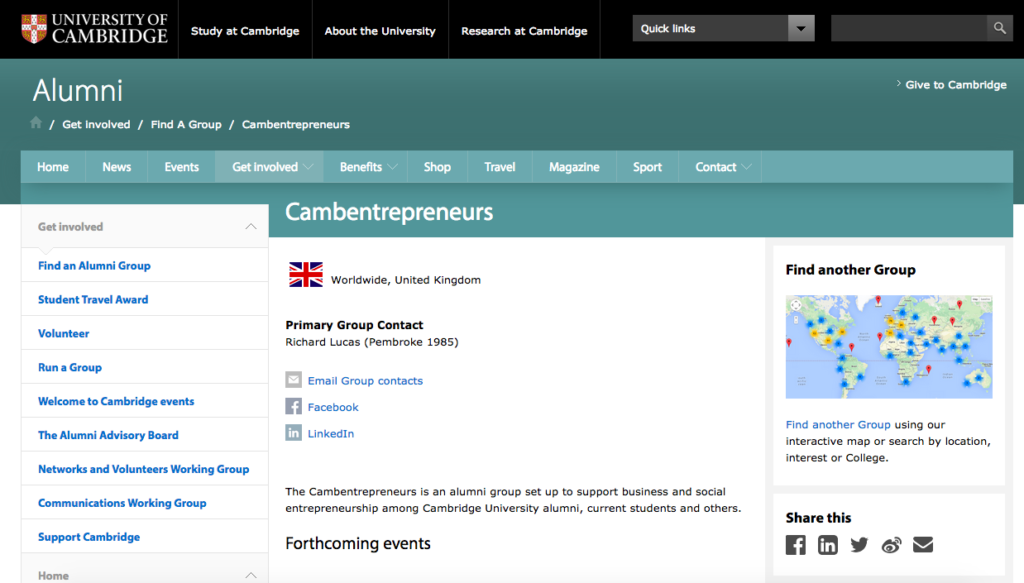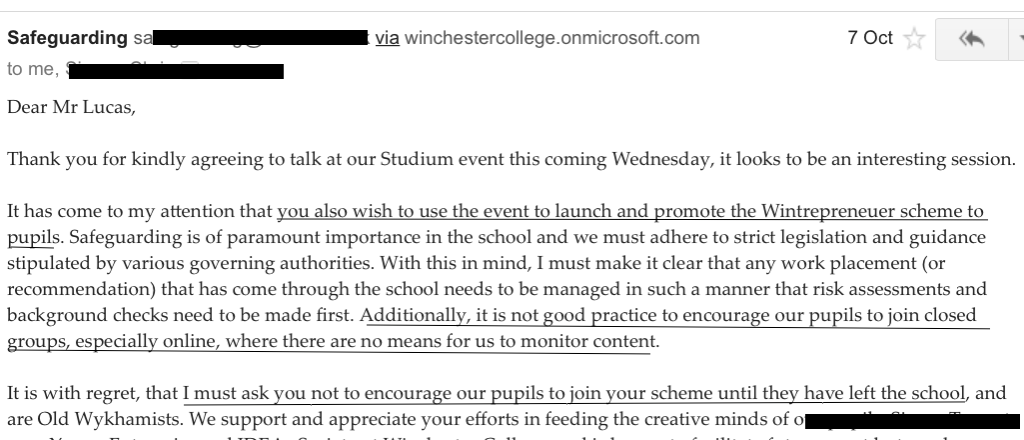Time for a revolution in Alumni - Student relations with respect to entrepreneurship
Introduction
Alumni are "low hanging fruit" - an under used group who can be mobilized to good purposes. It's time for a revolution in alumni/student/pupil relations with respect to support of entrepreneurship. North Americans tend to be good at this - Europeans not yet. Every entrepreneur is an alumni of somewhere. Even a solopreneur that operates their business completely by themselves has learned what they know from somewhere.
I’m starting with several assumptions.
People who have started businesses -entrepreneurs - have experience, know how, insights and characteristics and (sometimes) money that would be valuable to share with people who are thinking of starting a business, whether alumni, students, or others.
Students would benefit from be able to listen to, ask questions and interact with entrepreneurs, and other students interested in entrepreneurship.
the benefits would include increasing the chances that people who had such experiences and interactions will start new ventures, and if they do, both reduce the risk of failure and increase the scale of success.
Exposing students and alumni to people who are considering the possibility of starting their own ventures can be inspiring and motivating, increasing the chance that those people will make then most of their lives
Having more new initiatives and business ventures will change the world for the better faster, increasing human prosperity and welfare.
The internet makes the spreading of new ideas and the organisation of new movements easier, cheaper and faster than at any time in human history.
Many “pro-entrepreneurship events” are badly run and do not achieve nearly as much as they could. There is a better way of running events.
Good practice from TEDxAmsterdam
Years of organising TEDx events, Open Coffee Krakow events, Krakow Enterprise Mondays and speaking at multiple entrepreneurship related conferences has given me a strong insight into what makes an event special. I was even asked to do a workshop about this at TED.COM - who organise the best (and most expensive) events I've ever attended (TEDx events are low cost).
8. if more alumni become successful - and the place they studied has had a part in their success- it may positively impact on the school/university in terms of increased donations.
The starting position seems bad
1 Most alumni are not actively engaged in the the life of the place they studied at all.
2 To the extent that some alumni are engaged somewhat, they are not actively engaged. They might show up once or twice a year, and/or send some money. I will be more than glad to cite honourable exceptions. I want to be wrong.
3. A major purpose of engagement from the point of view of the School/University is fund raising. The thought that the alma mater is going to ask for money may act as a disincentive for alumni to engage.
What are the components of a revolution?
The challenge is that are several components. to achieve full impact they all need to work together smoothly. This is not easy and takes time and effort from those who share the vision.
The purpose needs to be made clear.
Entrepreneurship is not just about making money: it is about encouraging people and teams to take the risk to start social and business projects that may lead to making the world a better place. Celebrating the fact that there are those people who are ready to take the risk because doing anything new runs the risk of failure.
What needs to be done?
The alumni of an organisation who have gone into business need to be identified and contacted in an intelligent way to establish if:
a) they are interested in supporting entrepreneurship and networking with other entrepreneurial alumni and current pupils/students.
b) they might be ready to help on- or off- line by giving talks, mentoring, investing or coaching.
While the alumni contacted need to be asked and prompted to think about what they able and willing to do in networking and helping each other current students, and others, it is probably best to start with early adopters. In any community there is a spectrum between leaders, who are most active and committed, to the totally inert, with most people being somewhere in the middle. It’s important to identify these early adopters and leaders and work with them so that those who might be willing to get involved but are not sure, they have inspirational people to follow and work with.
This project may be best done in co-operation with the Development Office, the Careers Office, the Alumni Relations office and/or independent Unofficial Linkedin/Facebook Groups.
Unofficial Alumni Linkedin Group
This is a case by case decision based on the current situation. It is worth making contact with these organisations to see what they think and whether they want to help. At Cambridge University - the alumni office supported the formation of an officially sanctioned group Camentrepreneurs.
At Winchester College (the school I attended from 1979-84) I founded Wintrepreneurs
modelled on Etonpreneurs aimed to operate independently - in co-operation with the School In October 2017 I was asked *not* to organise a meeting to launch in Winchester because the School was worried about "Safeguarding" legislation. (I had been invited to give a talk in the school, was flying 2000 miles to be there, and thought I would start things off while I was there).
Apart from the referring to of my voluntary initiative to encourage entrepreneurship as a "scheme" (which - excluding the costs of my time - I had put a thousand or more pounds into making happen) - a message like this underlines the challenges for those who want to change things. Not everyone will be in favour, and some will make difficulties.
Informal self-organising communities of alumni and pupils are what is needed, with central support and direction to maintain standards and share good practice.. It's the antidote to the optimism of TEDster Clay Shirky's talk about the Grobanites. My "sanctioned" talk to the pupils went well, and for those interested, I recommended these entrepreneurship related resources.
In Kraków, Poland where I live - an Official Alumni Association run by salaried staff of a famous University are so unprofessional that they not only do not have time to to meet to discuss the idea, they are too busy to answer questions about their activities by e-mail.
If you decide you want to try to do something about this in your own place of former study, an important challenge is to find out who in a School/University are responsible for inviting guests, be they teachers, parents or pupils and make contact with them.
What sort of people are invited at present,
what sort of events take place at which entrepreneurial alumni would be welcome and helpful.
It is often easier to build on top of existing institutions and practices (like guest lecture series) than do something entirely new.
On the other hand if there is the ambition and local leadership aiming to “do things better” than normal, a dedicated event offers more control.
Additional questions include
What awareness is there of the potential of alumni to contribute to the purpose of the School/University ?
and in what areas would they like alumni to contribute?
At some schools I have done workshops at, I have been the first entrepreneur school pupils have ever met. It would be a mistake to assume to that everyone knows what the potential is. Guest workshops can fit very well some parts of the curriculum.
This means it is important to ask and find out what platforms are there for spreading information about the benefits of this practice. Is there a school web site, newsletter, school magazine, Facebook page, or Linkedin group where an article about the idea can be published?
Who can write an article about the topic ?
If there is a local leader they need to think about what they would like the local situation to look like?
If there are to be regular meet ups, basic questions
who?
what?
when?
where ?
Who is in charge?
How frequent should the meetings be and with what format?
need to be asked.
If you are at this stage I can provide some input and support,
if you share my values. Icebreakers, Short talks, Q&A, Office Hours, Community Announcements, Education, Pitches are the basic ingredients, together with a laser like focus on welcoming and participant experience will be important.
Doing good events, not just events ,.
Existing assets and relationships need to researched be understood. There may be particularly active staff, alumni, teachers, pupils or organisations that can be ideal for spreading the idea. Getting these people on board can be a game changer. They need to feel you are co-operating not competing.
It is important to look at the values and attitudes of the existing community and defining what is going to be important to the early adopters. I’ve made clear for the movements I lead that despite (maybe because of) their elite position they are “Open” in the sense that they are not Cambridge or Winchester “only” they are Cambridge or Winchester “and". It is not for me to define the values that matter to those reading this, but it is important to make sure the founders of your initiative know what they stand for.
Other Important Provisos
Processes and habits take time to build.
Assessing local competences and skills is important. In some cases there may be a need to "train the trainers”/ Teaching the entrepreneurs to teach. This is very much a question of local conditions. Many entrepreneurs are natural trainers, because they have all had to do develop on boarding and training processes for their staff.
In other cases, one person entrepreneurs/freelancers (or people in the school/University) may have no idea how important training and development is to successful enterprises, because they never thought about it.
A really bad workshop may be worse than nothing, although as my father told me "the best is sometimes the enemy of the good."
If you care and want to do a good event, it is better to do something than nothing. There has never been so much know how available for free on how to do things well as now. 10 minutes on Google is often enough.
As always it is important to have clear objectives for each activity/event.
Krakow Enterprise Mondays defines its goals as follows:
1. To facilitate and encourage transfer of know how and capital to from successful businesspeople among the alumni of Polish Universities to current entrepreneurial students
2. To give current students access to role models among entrepreneurial alumni who can help transmit the message that business success is possible.
3. to celebrate the business success of alumni. and the sense that the current generation of students appreciate and value entrepreneurial success.
4, To encourage existing alumni associations to include entrepreneurship support in their activities
5 to provide a business friendly environment where students from different universities in Krakow can meet and get to know each other, and develop their networks.
6. To encourage Student Societies to support business and social entrepreneurship among their members.
You need to know your objectives, best in collaboration with your core founders.
Objectives for alumni/entrepreneurs might include: feeling good, valued, and useful, making new contacts, finding new staff, co-founders, clients, suppliers, partners, investors , and well as having fun.
objectives for students may include learning new skills, being inspired, making new contacts, finding jobs, investors, co founders, and having fun.
If you want to mobilise the
- trend towards self-organising networks,
- desire for people to have better experiences in their lives, rather than just accumulating assets
- the willingness for people to be useful
and believe the world needs more entrepreneurship, join me in making this revolution happen. I'll do my best to help.





